Three Iranians Among Nominees For 2023 Nobel Peace Prize
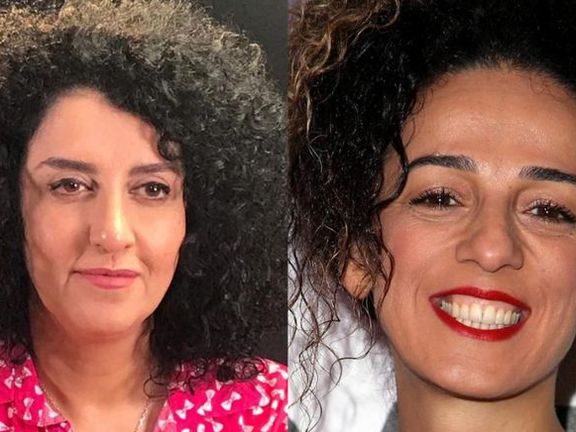
Three Iranians have been nominated for the 2023 Nobel Peace Prize, according to unofficial sources and those who nominated them.

Three Iranians have been nominated for the 2023 Nobel Peace Prize, according to unofficial sources and those who nominated them.
Masih Alinejad, a prominent Iranian activist, has been nominated for her steadfast commitment "to fighting for freedom of expression, democracy, and women's rights in Iran”. Alinejad garnered global attention when Iran's Intelligence Ministry's attempted abduction of an Iranian American journalist was exposed by US authorities in July 2021.
Narges Mohammadi, an imprisoned Iranian human rights activist, has also secured a nomination for her pivotal role in representing the aspirations of countless courageous Iranians. She is recognized as representing hundreds of thousands of brave Iranians, women and men, who are willing to risk everything to bring peace and freedom back in Iran.
Jafar Panahi, a distinguished Iranian film director and screenwriter associated with the Iranian New Wave film movement, has been nominated for his efforts to convey the societal challenges that affect the lives of ordinary Iranians in their everyday lives.
The international peace prize, established in accordance with Alfred Nobel's will, is scheduled to be revealed in Oslo, Norway, in October 2023, with the award ceremony set for December 10.
The Norwegian Nobel Committee disclosed that they received a total of 305 official candidates for the 2023 Nobel Peace Prize, comprising 212 individuals and 93 organizations. While nominations remain confidential, certain Norwegian parliamentarians and academics are permitted to publicly announce their preferred candidates to generate awareness for both the nominee and the nominator.
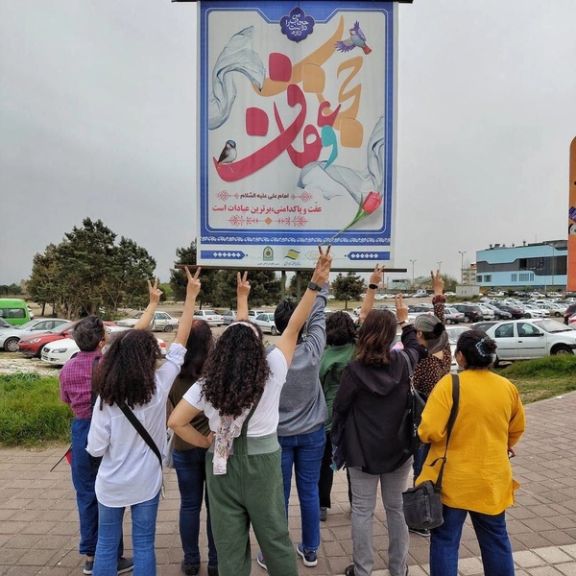
The president of Iran has issued a statement threatening that protests against hijab will soon come to an end.
On Wednesday, Ebrahim Raisi said that protests against the hijab were driven by foreign influence and threatened that the regime would stem the protests by raising awareness and elevating a strategic response, which in reality means that they will crush resistance to the hijab.
"Certain individuals, not adhering to hijab, may lack awareness. Our duty is to raise their awareness,” he said, also citing that “foreign influences are orchestrating an organized campaign to abolish the hijab."
He also referenced Supreme Leader Ali Khamenei's perspective, "As per the leader, enemies have strategized in this domain, necessitating our strategic response in kind". The term "enemies" has been consistently employed by Khamenei to refer to entities such as the United States, Israel, and US allies in the region and in Europe.
Raisi's assertion on the hijab policy is significant given the persistence of Iranian women and girls to challenge the compulsory headscarf. The authorities of the Islamic Republic refer to this defiance as "the removal of the hijab." Furthermore, his remarks come less than two months before the anniversary of Mahsa Amini's tragic death while in custody of the morality patrol.
In July 2022, Raisi took action by instructing all government entities to strictly enforce a "chastity and hijab" law, initially approved by the administration of hardliner Mahmoud Ahmadinejad in 2005. The subsequent weeks saw stringent measures taken on the streets, prompting nationwide demonstrations fueled by the death of 22-year-old Amini.
Nevertheless, in the face of these measures, Iranian women have maintained their increasing resistance against the compulsory hijab enforcement.
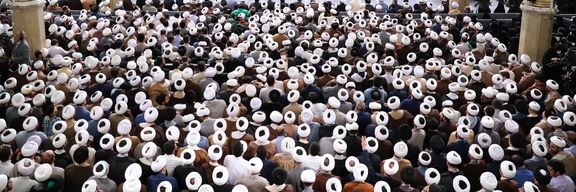
A moderate-conservative news website in Tehran has expressed concern over the absence of Iran's political elite in the upcoming March 2024 parliamentary elections.
The traditional political elite of the Islamic Republic expecting an engineered vote next year are not inclined to get involved. The hardliners have an open field to perpetuate and even strengthen their monopoly over power.
Khabar Online website’s columnist Rasoul Salimi said that the absence of the elite not only from electoral politics but also in popular protests since 2018 has brought the government face to face with the masses. The political elite have evacuated the buffer zone between the people and the government.
Feeling side-lined as their warnings about looming crises and economic and political upheavals have been ignored by populist governments, the elite has withdrawn, the article said.
The result is that the masses move toward “essential social changes,” the author said carefully weighing his choice of words, avoiding phrases such as unrest and upheaval. The only thing governments have done was delaying social change by engineering political developments and using propaganda to make an impact on the public opinion, he said.
The absence of the elite, he argued, is likely to adversely affect the political system's legitimacy and people's trust in the government as the parliamentary elections approach.
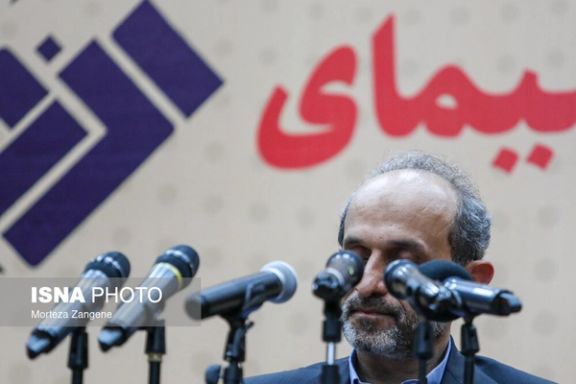
In the meantime, the head of the state television Payman Jebelli told Entekhab News on Sunday: "The result of the elections has no significance for us. The most important thing for us is to ensure a high turnout in the election by encouraging maximum participation." For months many analysts and former officials have been criticizing the state TV for its deep bias in favor of hardliners in power.
Jebelli said that based on the guidelines offered by Supreme Leader Ali Khamenei, the state television's main concerns will be "participation, competition, security and a healthy election." He added that the state television will play a direct role in securing a high voter turnout and competitiveness.
Many Iranian politicians have expressed concern in recent weeks that the government's unilateral and discriminatory approach to elections, and the disqualification of moderate and reformist candidates will lead to one of the lowest turnouts in the Islamic Republic's history.
During the past week, the Interior Ministry has been sending text messages to millions of Iranians calling on them to nominate themselves as candidates for parliament.
Political activist Khalilollah Balouchi wrote on Twitter on Saturday: "In the past, if there were not so many voters, at least there were enough candidates. Now, the government is calling on everyone to become a candidate."
Conservative politician and Expediency Council member Mohammad Javad Bahonar told Entekhab News on Sunday that in the March elections, "the turnout is more important than the election itself."
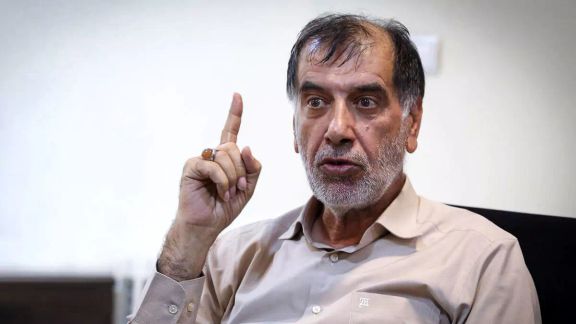
He said that despite calls for a high turnout, "Some politicians are looking for their own victory in a low-turnout election without officially saying so." This, Bahonar said, is against what Khamenei has called for.
Hardliners, particularly the ultraconservative Paydari Party, who advocate purification to limit the election to their likeminded comrades, see everyone else including experienced conservative politicians such as himself as "outsiders," Bahonar complained.
The "outsiders" and political "elites" are jargons used by the officially tolerated opposition in the Islamic Republic to refer to individuals in the conservative camp such as Bahonar, others in the centrist and moderate camp such as the members of Executives of Construction Party and former President Hassan Rouhani's aides, as well as reformists such as those like jailed Mostafa Tajzadeh who believe in minimal changes within the current structure of the Islamic Republic.
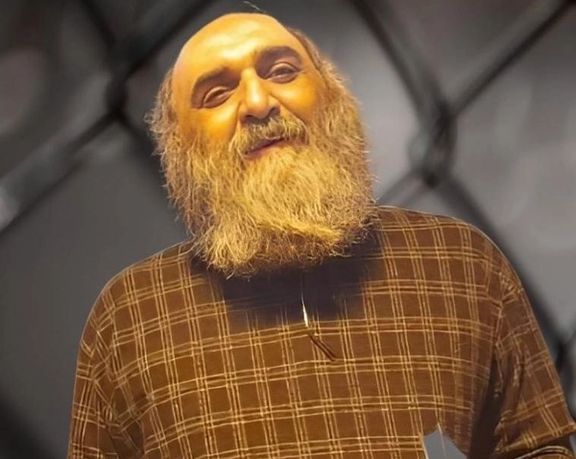
A unified statement from activists, writers, and artists has called for the release of imprisoned poet Habib Mousavi Bibalani and an end to repression.
Mousavi, a notable opposition poet, was apprehended on Monday and has since been detained at Amirabad prison in Gorgan. The charges against him, such as "propaganda against the system" and "disturbing public opinion," have triggered widespread concern among his supporters and peers.
The statement, compiled by over 260 activists, states that rising repression and increased incarcerations signals fatal cracks in the regime. They slammed the incarceration of Mousavi and other activists and said such acts of repression are a sign of the regime losing hold of its oppressive power.
The statement said that writers have historically been primary targets during successive waves of repression and indicated that this is a sign of decreasing grip of authority. “When a political order violates every aspect of the lives of those who produce and distribute ideas and speech... it is an attempt to shut the very last remaining windows of political presence. One can only conclude that this political order itself does not have much hope for retrieving its already lost legitimacy,” the statement reads. It also highlights the eerie resemblance of the regime’s actions in 2023 to the totalitarian regimes of the early 20th century.
Amidst mounting worries about Mousavi's health, the signatories of the statement also draw attention to his numerous medical conditions, including heart disease, lumbar disc issues.
Furthermore, the collective of activists highlighted hundreds of disturbing cases of repression against writers during the Mahsa Uprising, including instances of violence, staged suicides, unlawful detentions, abductions, exiles, psychological and physical torture, intrusive home searches, and intimidation tactics.
Statistics from PEN America's latest Freedom To Write Index reveal a distressing surge in the incarceration of writers in Iran during 2022, compared to the preceding year, reflecting the government's heightened suppression of dissent.
The intensified crackdown on anti-government protests following the tragic death of Mahsa Amini in police custody has led to a deliberate focus on writers, artists, cultural figures, celebrities, and athletes who challenge the status quo.
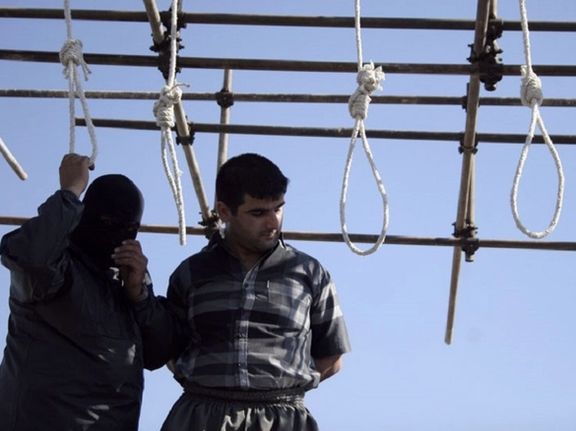
Five men from Marand, in north-western Iran, were executed on Wednesday morning after being convicted of rape.
The defendants were arrested and imprisoned in early June, following their alleged involvement in the gang rape of a woman.
The ISNA news agency reported that Yuosef Ziamehr, Marand's general and revolutionary prosecutor, revealed the details of the case.
“On May 21, 2022, a woman approached the Marand city prosecutor's office and claimed to have been kidnapped by five unknown individuals and forcibly taken to the mountains around the city, where she was subjected to rape by all five perpetrators.”
The law enforcement agents identified and arrested the five defendants within four days of the crime and their subsequent trial culminated in a death sentence, which was upheld by the Supreme Court. The identities of the executed men remain undisclosed.
The timing of these executions coincides with a report from the United Nations High Commissioner for Human Rights, which sheds light on the alarming trajectory of capital punishment in Iran. The report highlights a steep rise in executions, with 582 individuals put to death in 2022, marking an increase of 75% compared to the previous year's figure of 333. Of particular concern is the fact that the 2022 executions included three juveniles.
In 2023, numbers appear to correlate with 2022 with 94 executions recorded in January and February alone.
The report also brings attention to the execution of individuals accused of participating in nationwide protests including those of Mohsen Shekari, Mohammad Mahdi Karami, Mohammad Hosseini, and Majidreza Rahnavard.
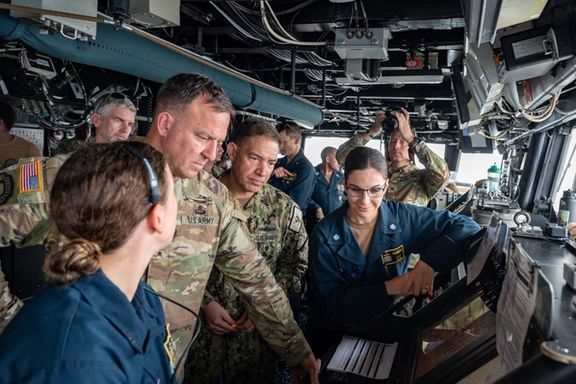
As a display of power in the region, US Gen. Michael “Erik” Kurilla commander of CENTCOM sailed through the Strait of Hormuz aboard a Navy warship, August 6-8.
The US Central Command announced on Tuesday that Gen. Kurilla also paid a visit to the United Arab Emirates and Bahrain, two US allies in the Persian Gulf, whose commercial maritime traffic face a constant threat harassment from Iran.
Iran attempted to seize two commercial vessels in early July in the Persian Gulf but was met with a US response and withdrew, according to the Pentagon. Tehran has harassed or seized more than 15 commercial ships in the past two years in the general area of the Persian Gulf.
Anticipating continued Iranian attacks on commercial shipping, the White House had announced in May that the Biden administration would be making moves in the region, but at the time did not say what they would include.
Later, the Pentagon began to augment the US military presence in the region by deploying F-16 and F-35 warplanes in July, and also dispatching three additional naval vessels carrying more than 3,000 sailors, including Marines.
Following Iran's March agreement to a détente with Saudi Arabia facilitated by China, numerous observers have asserted that the United States is experiencing a loss of influence in the Middle East, signaling a potential end to the era of American dominance in the region.

In a perplexing announcement on May 31st, the UAE announced its withdrawal from a US-led maritime security coalition, a move that took place earlier in the year. The UAE further indicated its ongoing evaluation of its security partnerships.
"As a result of our ongoing evaluation of effective security cooperation with all partners, two months ago, the UAE withdrew its participation in the Combined Maritime Forces," the Ministry of Foreign Affairs said in a statement carried by state news agency WAM.
Iran's navy commander said June 3 that his country and Saudi Arabia, as well as three other Persian Gulf states, plan to form a naval alliance, including India and Pakistan.
"The countries of the region have today realized that only cooperation with each other brings security to the area," Iranian army's navy commander Shahram Irani was quoted as saying.
However, this was not confirmed by any of the other countries allegedly involved and seemed to be an Iranian attempt to gain political leverage after the UAE announcement.
The following day, US 5th Fleet and Combined Maritime Forces spokesperson Cmdr. Tim Hawkins told Breaking Defense, a digital news outlet on global military, “It defies reason that Iran, the number one cause of regional instability, claims it wants to form a naval security alliance to protect the very waters it threatens.”
The UAE announcement, however, remained a mystery, without any follow-up confirmation of its withdrawal from the US-led coalition, or a clear denial by the United States. It is possible that Abu Dhabi was exerting pressure on Washington to show more determination in deterring Iranian maritime adventures.
In this context, General Kurilla's recent sea voyage through the Strait of Hormuz, his diplomatic visits to two allied nations, and the bolstering of US naval and aerial capabilities in the region collectively aimed to provide reassurance to Arab allies.
Kurilla visited UAE where he met with Armed Forces Chief of Staff Lieutenant General Issa Saif Mohammed al-Mazrouei. He then traveled to Bahrain where he met with King Hamad bin Isa Al Khalifa, Lieutenant General Abdullah bin Hassan Al Nuaimi, the Bahrain Minister of Defense Affairs, and the US Fifth Fleet Headquarters.
“These trips to the region provide me deep insights into the relationships with our partners and the readiness of the US and Coalition forces deployed there” said Gen. Kurilla. “I continue to be impressed with the high level of readiness, professionalism, and capability of the US forces serving in CENTCOM. The commitment of our forces and partners is key to regional security.”